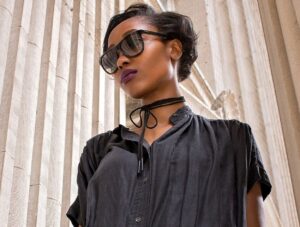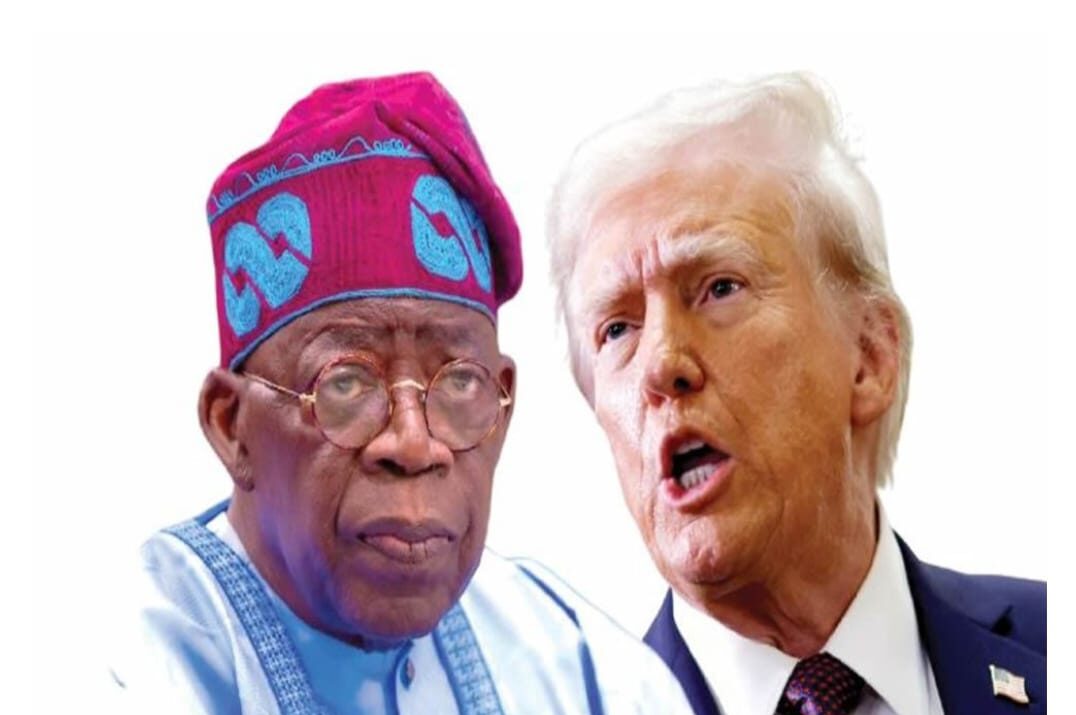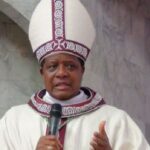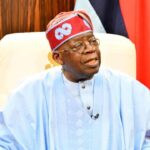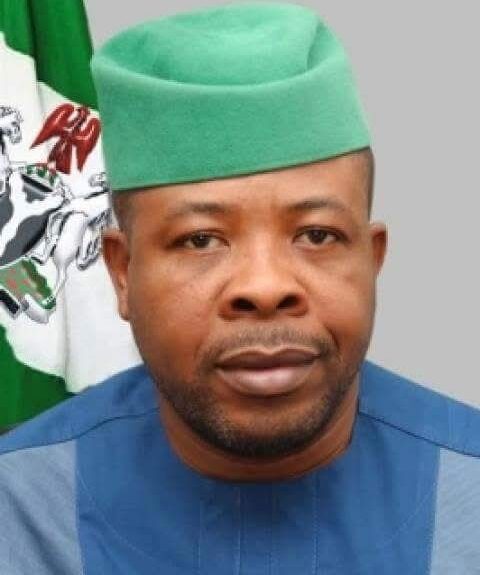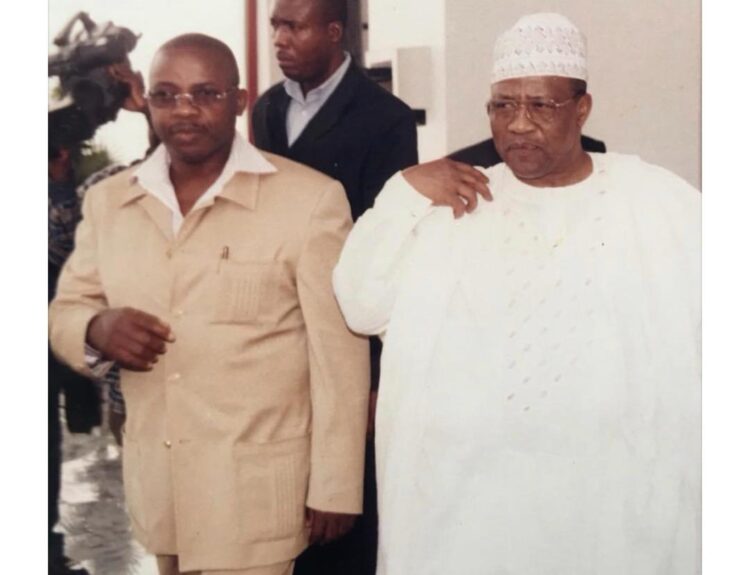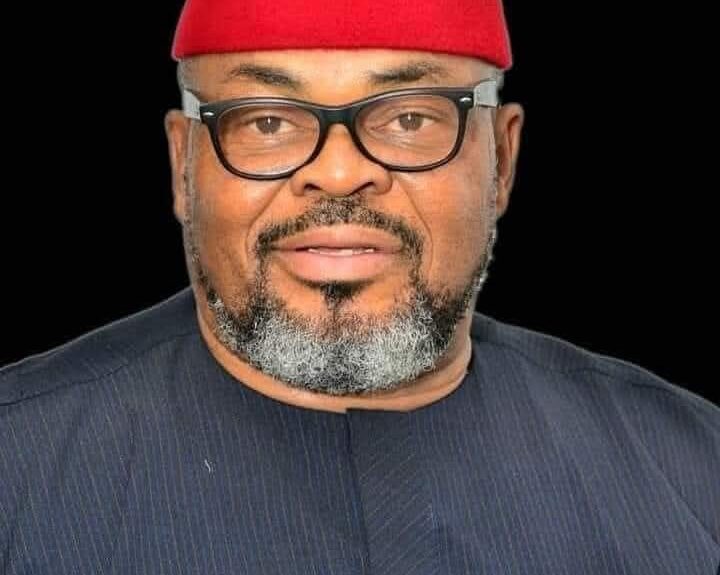By UCHE Obiozor
Memories linger but there are days when a people actually wish that their departed relatives, friends or compatriots are still very much around. One of such moments in our dear country, Nigeria, is now. In the last couple of weeks that President Donald Trump issued a threat to Nigeria, there is a sudden realization that our country seems to suffer a depletion of seasoned diplomats who would helped their fatherland navigate this troubled times. Either they are no more or those still around have either lost steam or are suffering from a certain inertia that arises from the “trouble with Nigeria”. Given the consensus that what Nigeria needs now is deft diplomatic moves, one of such persons whom Nigerians would certainly wish he were still around is the late Professor (Ambassador) George Obiozor who departed three years ago.
Ambassador Obiozor served as Nigeria’s Ambassador to the United States of America between 2004 and 2008. Apart from being one of the longest serving in that mission, his appointment was unique. Obiozor had before his posting to the United States, served as Nigeria’s Ambassador to Israel between 1999 and 2003, with concurrent responsibility as High Commissioner to Cyprus. This earlier exposure put him in a very good stead to carry out further work of diplomacy in the US especially given the relationship between the latter and Israel.
Given that Obiozor served in those positions in the formative years of the current democratic dispensation, he helped in no small measure in shaping the relations between Nigerian and the two countries. It was no doubt a challenging period because Nigeria was just beginning to wear a new look in the eyes of the rest of the world after several years of military dictatorship, more so in the immediate five years before the transition in 1999.
But even before going into the field of diplomacy proper, Obiozor had been involved in a deep study of international diplomacy,both bilateral and multilateral. It was in the course of that involvement that he published some of the world’s most renowned books on international relations and diplomacy. They include, Nigeria’s Participation In the UN (1985); Nigeria And the World: Managing The Politics of Diplomatic Ambivalence In A Changing World, (1986); Uneasy Friendship: Nigerian-American Relations (1992); The United States And The Nigerian Civil War (1993) and The Politics of Precarious Balancing: Analysis of Contending Issues In Nigeria’s Domestic And Foreign Policy (1994). Each of these books stood out on its own but the situation today sets Obiozor aside both as a diplomat and, indeed, a prophet especially with respect to the last two books .Details of “Uneasy Friendship …” were not available at the time of putting this write up together but its title sounds prophetic given the circumstances of today.
Obiozor wrote the book when thing were good – so to speak – but the unease, he wrote about is now here. In other words, even though the circumstances then and now are not the same, I believe it is possible to glean from Obiozor’s 1992 book insights that could help navigate the current situation, at least in a broad sense. It would be proper, therefore, for those saddled with the responsibility of carrying out the current diplomatic assignment to go grab a copy of “Uneasy Friendship…”. The big question, however, is, what would have been Professor Obiozor’s response to President Trump’s threat were he to be around today?
But first, let’s look at what those – former Nigerian Ambassador to the US – still alive have had to say on the matter. Hassan Mohammed, Nigeria’s former Ambasador to the United States in an interview with ARISE News on November 3, 2025, faulted President Trump on his threat of invasion to Nigeria. Mohammed noted that while the United States has the legal authority to pressure countries failing to uphold freedom of religion under its 1998 International Freedom of Religion Act, (IFRA), the law does not grant the US the right to declare war on carry out military action over such matters. The former envoy recalled that Nigeria had been previously listed under the Act in 2001 and 2002, but the issue was resolved amicably through dialogue.
Another diplomat, Ambassador Danjuma Nanpon Sheni, reacting to the designation of Nigeria as a “Country of Particular Concern” and threat of military action against her by President Trump ,over alleged religious persecution of Christians,had this to say: “As a Christian, I find it difficult to fully agree that Christians are being systematically persecuted in Nigeria. What I see is that human beings are being killed regardless of faith. People are being killed by insurgents and bandits across communities… but do I believe that the federal or state government are sponsoring the killings? My answer is no”. Asked how he feels the situation should be handled based on his experience, Ambassador Shani said: “Nigeria’s diplomatic enagement is poor … we should have ensured this designation never happened in the first place. We saw the warning signs …. Nigeria must put its best diplomats forward, both retired and serving, alongside respected elder statesmen, to begin a serious lobbying mission in Washington”
Another former Nigerian Ambassador to the Philippines, Mr Yemi Farounbi, in his own reaction warned President Bola Tinubu against visiting President Trump in the US, describing such a move as “politically unnecessary”. Ambassador Farounbi said President Tinubu must avoid actions that portray Nigeria as seeking validation from leaders who have little regard for Africa’s dignity. “Nigeria’s president represents over 200 million people. He should not visit anyone who once called African nations ‘shit hole countries’. We must act like a nation that values itself, not one begging to be recognized”.
Ambassador Farounbi, however, blamed the current development on Nigeria’s poor diplomatic response to international criticism and described the US action as a predictable outcome of silence and in action. “We cannot claim we didn’t see this coming. For years, Catholic Bishops from Benue and Plateau states have appeared before the US Congress and European Parliament presenting statistics of Christians killed by militants yet Nigeria offered no stronger counter narrative”.He added: “When you refuse to speak for yourself, others will speak for you… and when they do, they will not tell your story with fairness”.
Now back to the question, what would have been Ambassador Obiozor’s own reaction to the current situation. First, it is important to note that Professor Obiozor was an Establishment man. In his public career that spanned over a period of forty years, there was no THINK TANK in the country Professor Obiozor was not part of, even though those who set up such bodies ended up doing without the recommendations given to them. Throughout the military era, Professor Obiozor was one of the few intellectuals the “Khaki Boys” took into confidence after they had discovered in him a man of his own. bold and with the courage to speak truth to power. Since the advent of the current democratic dispensation, administration after administration has also taken him into confidence, as illustrated by the fact that even the tough-talking and cunning President Olusegun Obasanjo appointed him to two of the world’s most strategic missions – Israel and the US.
This, coupled with the fact that Obiozor was an African patriot, would have most probably made him to stand up against any real or potential intimidation to Nigeria. However, he would have recommended dialogue, not a “What Do You Think You Are”? posturing. As revealed by Ambassador Hassan Mohammed, Nigeria was first listed for sanction under the U.S IFRA in 2001 and 2002 but the matter was resolved amicably through dialogue. The time is significant. The listing was in 2001 and 2002 and Professor Obiozor arrived the international diplomatic turf first in Israel in 2003 and then U.S in 2004. That being the case, he must have played a key role in the dialogue that led to the delisting of Nigeria’s name as an offender on the IFRA.
Yet, Professor Obiozor, would not have hesitated to tell the Tinubu administration where it went wrong. He wouldn’t even have waited for Trump to come up with his threats. Given that signs of an imminent global concern over Nigeria was already palpable, Professor Obiozor would have proactively galvanized other intellectuals like him, especially on the diplomatic turf , for a subtle push back over wrong perceptions and prejudices on Nigeria. HON. OBIOZOR WROTE FROM UBACHIMA , AWO-OMMAMA, IMO STATE.
